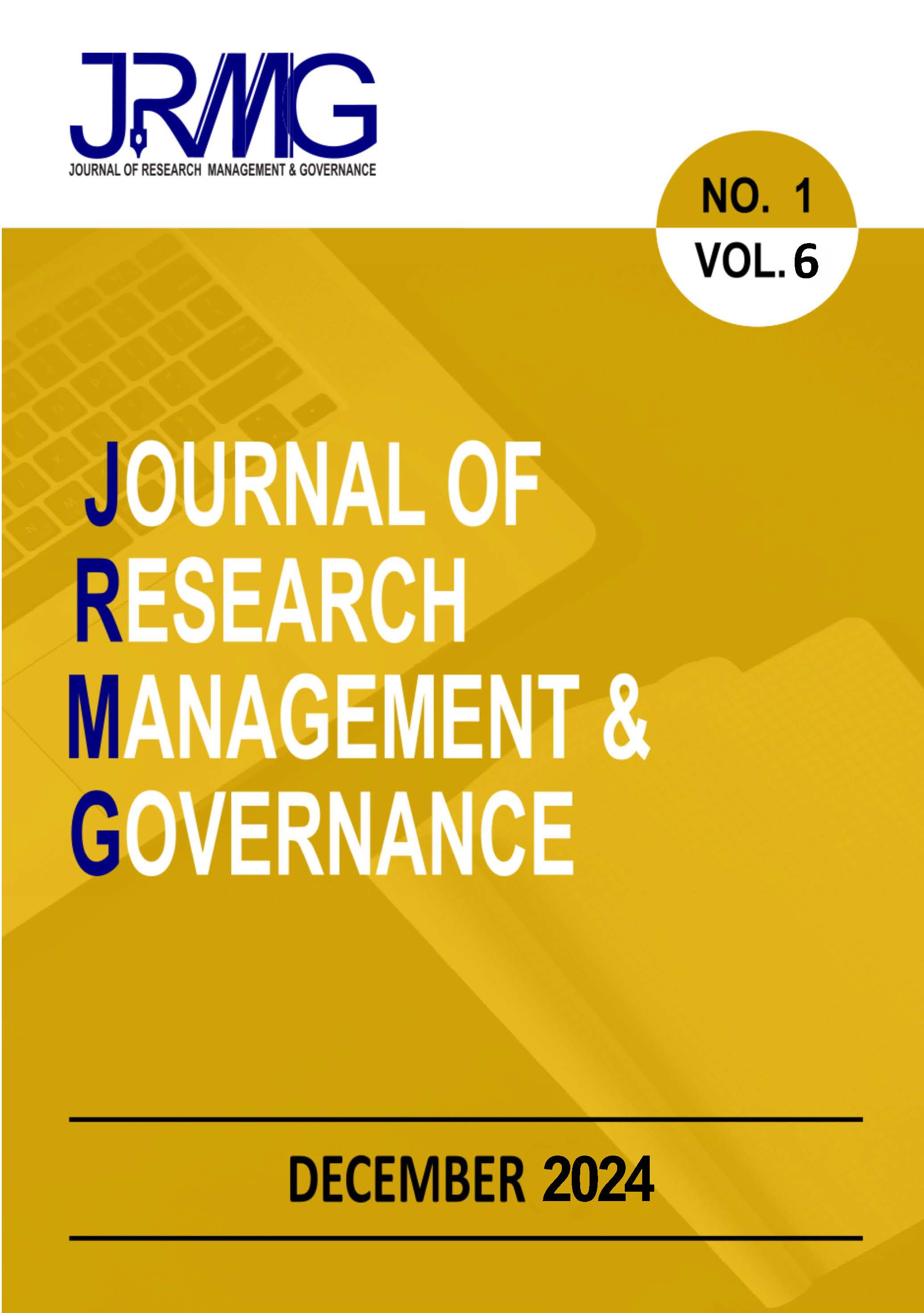Framework to Humanise Research Support in Academic Institutions
Main Article Content
Abstract
Purpose
The purpose of the study is to identify the attributes to build a successful research management ecosystem, to understand the extent to which identified attributes contribute to successful research support environment, and to develop a framework for strong research management in Higher Education Institutions (HEIs).
Methodology
This study used a mixed-method approach. Through recorded discussion with academics and non-academics involved in research and research support, we identified the areas to be addressed for an efficient research experience. We then conducted a pilot study with 50 participants to validate the findings from the qualitative analysis.
Findings
We found that a research management ecosystem system requires ethical conduct from individuals and an ethical culture which is grounded on honourable behaviour of all organisational participants. This is not only aligned to Malaysian codes of responsible conduct in research but is also in accordance with existing guidelines. A new framework is suggested in this paper based on which, universities can create a research ecosystem that balances global goals with local relevance, resulting in a collaborative working model that is more strategic.
Downloads
Article Details

This work is licensed under a Creative Commons Attribution-NoDerivatives 4.0 International License.
Articles submitted to the journal should not have been published before in their current or substantially similar form, or be under consideration for publication elsewhere. Authors submitting articles for publication warrant that the work is not an infringement of any existing copyright and will indemnify the publisher against any breach of such warranty. For ease of dissemination and to ensure proper policing of use, papers and contributions become the legal copyright of the publisher unless otherwise agreed. By submitting a manuscript, the author(s) agree that copyright for the article is transferred to the publisher, if and when the manuscript is accepted for publication. However, it can be reprinted with a proper acknowledgement that it was published in JRMG.

This work is licensed under a Creative Commons Attribution-NonCommercial-NoDerivatives 4.0 International License.
